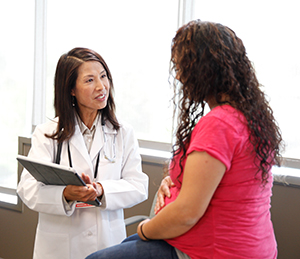The beginning of labor is the beginning of birth. You’ll start to feel strong contractions. That’s when the muscles of your uterus tighten up to help push your baby out during birth.
Yes, labor has likely started
Signs of labor include:
-
Your contractions are getting stronger and more painful instead of weaker. You’ll likely feel them throughout your whole uterus.
-
Your contractions are regular. This means that you feel them about every 5 to 10 minutes. And they are getting closer together.
-
You have pink-colored or blood-streaked fluid from your vagina.
-
You feel that the baby has "dropped" lower in your pelvis
-
Your water breaks. It may be a gush or a slow trickle of clear fluid from your vagina.
No, it’s likely not real labor
Signs of false labor include:
-
Your contractions aren’t regular or strong.
-
You feel the contractions only in your lower uterus.
-
Your contractions go away when you walk or change position.
-
Your contractions go away after drinking fluids.
When to call your healthcare provider
Call your healthcare provider or clinic right away if you notice any of these signs:
-
Fluid from your vagina, with or without contractions.
-
Bleeding heavy enough that you need a sanitary pad.
-
You don’t feel your baby moving as much as before.
Note
Contractions are timed by both of these measures:
-
The length of each contraction from its start to its finish.
-
How far apart the contractions are —the time between the start of one contraction and the start of the next contraction.


